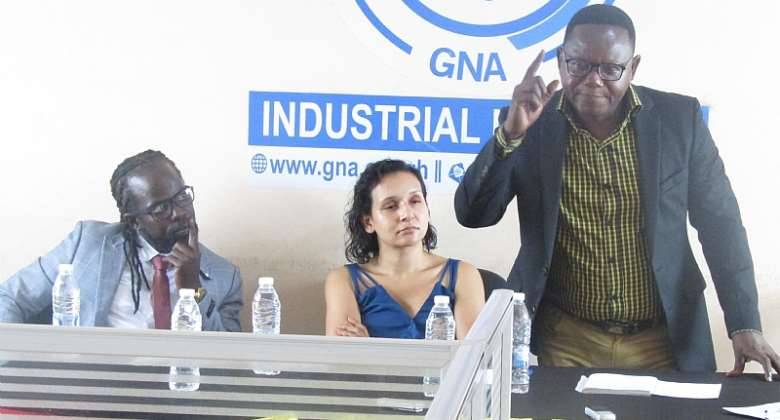Incompetent management of competent agricultural policies are fundamental elements of the current food shortages the nation is experiencing, the General Agricultural Workers Union (GAWU) has revealed.
Mr Edward Kareweh, General Secretary of GAWU, explained that formulating the right policies and enabling them to be enforced by competent leaders would improve crop productivity and product quality across agricultural value chains.
“However, things are not being done right. Incompetent application of laudable policies has created a problem where food is cheap at the farm but expensive at the end of the value chain which is at the consumer's gate.
“Each player in the agricultural value chain plays a unique role and has different operational needs, but unfortunately, policy makers put everything into one big box during the implementation phase, which has weakened some buttons in the chain and subsequently the nation pays for it. it".
Mr. Kareweh stated at the 15th monthly workshop on stakeholder engagement and worker appreciation organized by the Ghana News Agency's Tema Regional Office, which aimed to provide a platform for state and non-state organizations to address national issues to enhance development as monitored by Communication for Development and Advocacy Consult (CDA Consult) in Tema.
The event also served as a motivational mechanism to recognize the reporters' editorial contribution to national development in general, growth and promotion of Tema GNA as an industry news hub.
Speaking on the theme: "Ghana's Agricultural Value Chain," Mr. Karewh said there was need for government to create an enabling environment that would help facilitate linkages between key players in the value chain and support services including financial services, technical advisors and mechanization services. manufacturers.
According to the GAWU General Secretary, poorly formed relationships along most agricultural value chains in the country have fostered a high degree of predatory behavior among actors, which has negatively affected the sector.
This predation, he explained, also worsens and weakens the empowering system, which limits investment and reduces efficiency and resilience, hindering competitiveness, which in the long run affects the average farmer's income and willingness to buy inputs.
He argued that government policy must provide concrete incentives to dealers and users of agricultural machinery to help empower smallholder farmers as key stakeholders.
"So we must not blow our own trumpets that we are working. Let those we serve judge. We must not praise the project for its beautiful features, we must do that only after we see the results," he said.
He also revealed that the country currently lacks an effective structural policy to optimize the competitiveness of the agricultural value chain.
Improving the competitiveness of agricultural value chains requires improving productivity along specific value chains for an efficient and effective input supply system, Mr. Kareweh, the GAWU General Secretary stated.
Mr. Kareweh said the financial sector is weak and poorly structured to receive the capacity building investments required to effectively support the agricultural sector in general, specifically the equipment sector, which is holding back the value chain from its huge potential.
He noted that wholesalers have limited interest in building branded retail channels that go through to farmers, making them less important as a leverage point to improve broader and more convenient access for smallholder farmers.
He added that there are larger retailers with multiple branches who are very interested in expanding their distribution networks but are concerned about the risks and costs of setting up new stores due to the failing economic system, adding that the country needs structural assistance and not the International Monetary Fund (IMF). .
Other speakers at the stakeholder engagement included: Mr. Richard A. Quayson, Deputy Commissioner, Human Rights and Administrative Justice Commission; Mr Richard Kovey, Adviser at the Campaign Against the Privatization and Commercialization of Education (CAPCOE); and Mr. Papi-Paulo Zigah, Director of International Operations, Future Careers Ghana.




No comments yet
Be the first to share your thoughts!